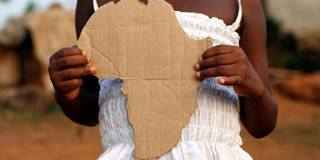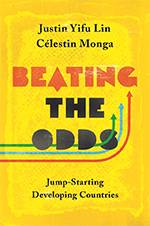OnPoint Subscriber Exclusive

Brahima Coulibaly
Says More…
This week, Project Syndicate catches up with Brahima Coulibaly, a senior fellow and Vice President of Global Economy and Development at the Brookings Institution.
Project Syndicate: Last year, Ngozi Okonjo-Iweala and you described an agenda for making globalization more inclusive. You argued that African policymakers, for their part, should accelerate regional integration, overcome skills mismatches, bridge gaps digital infrastructure, and create a mechanism to manage the ownership and regulation of online data. How do you rate progress in these areas over the last year? As the COVID-19 crisis deepens suspicion of globalization in many parts of the world, how might this agenda – or strategies for advancing it – need to change?
BC: In recent decades, Africa’s share of world poverty has grown, highlighting an undeniable truth: the continent has been short-changed by globalization. The agenda we laid out aims to change this through medium- to long-term action shaped by increased awareness of the dynamics at work and sound policies. Over the last year or so, I have seen a greater recognition in African policy discussions of the importance of developing digital skills and infrastructure, and accelerating integration, in line with our recommendations.
The COVID-19 crisis could accelerate progress on both fronts. First, it has underscored the critical role of digital infrastructure in supporting resiliency. Second, it could bring about a reconfiguration of global supply chains aimed at reducing vulnerability. While that may include some reshoring of production, it could also focus on geographic diversification, which would create valuable opportunities for Africa to expand its footprint in global value chains – and reap more rewards from globalization.
Coulibaly recommends
We ask all our Say More contributors to tell our readers about a few books that have impressed them recently. Here are Coulibaly's picks:
-

AI Superpowers: China, Silicon Valley, and the New World Order
by Kai-Fu Lee
Artificial Intelligence will be the most consequential technology of the twenty-first century. Lee – one of the world’s leading experts on the subject – walks the reader through AI’s genesis, evolution, and geopolitics.
-

The Laws of Human Nature
by Robert Greene
This book sheds light on what shapes our behavior, whether consciously or not. Obviously, understanding what motivates members of our species – what angers, scares, and reassures them, for example – is extremely helpful in virtually any kind of interaction.
-

Beating the Odds: Jump-Starting Developing Countries
by By Célestin Monga and Justin Yifu Lin
In this compelling book, the former chief economists of the African Development Bank and the World Bank, respectively, challenge development-policy orthodoxy.
From the PS Archive
From 2018
Coulibaly describes research suggesting that services could sustain the same growth rates as manufacturing, offering African an alternative path to development. Read more.
From 2017
Coulibaly worries that labor-replacing technologies will derail progress toward sustainable industrialization in Africa. Read more.
Around the web
Coulibaly joins David Dollar, a senior fellow at Brookings, to discuss Africa’s prospects after the COVID-19 crisis – and the need for stronger action to guarantee that countries have the financial resources they need to fight the pandemic. Listen to the podcast.
Coulibaly – together with Okonjo-Iweala, Tidjane Thiam, Donald Kaberuka, Vera Songwe, Strive Masiyiwa, Louise Mushikiwabo, and Trevor Manuel – reiterates his call for stronger action to support African countries. Read the commentary.